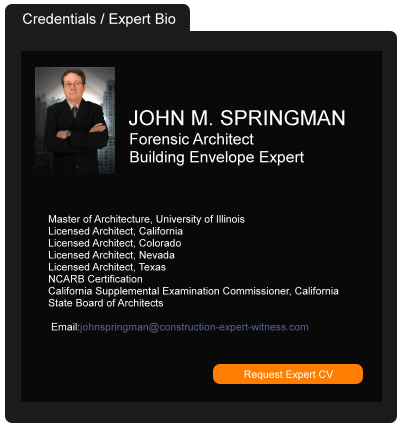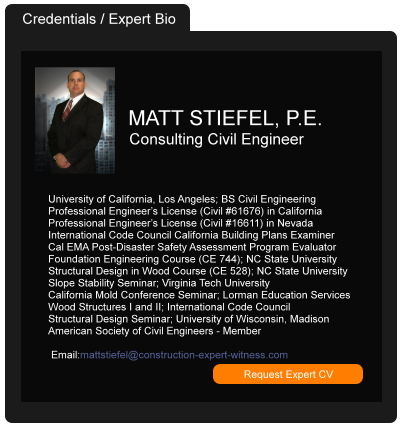Whose Employee is it Anyway?: Federal Court Finds No Coverage for Injured Subcontractor's Claim Based on Modified Employer's Liability Exclusion
September 28, 2020 —
Jeffrey J. Vita & Kerianne E. Kane - Saxe Doernberger & VitaIn Nagog Real Estate Consulting Corp. v. Nautilus Insurance Co.,1 the United States District Court for the District of Massachusetts held that an insurer had no duty to defend its insureds against claims brought by an injured subcontractor, based on an overbroad employer’s liability exclusion in the policy.
Nautilus Insurance Company issued a commercial general liability policy to developer Nagog Homes LLC and its related construction company, Nagog Real Estate. The policy was endorsed with an Employer’s Liability Exclusion (the L205 Endorsement) that expanded the scope of the standard exclusion in the coverage form to include bodily injury claims of employees of “any” insured and their contractors or subcontractors, as opposed to simply the employees of the named insured.
Nagog Homes was the developer, and Nagog Real Estate was the general contractor for a residential construction project. An employee of the framing subcontractor hired by Nagog Real Estate was injured while working on the project and sued both Nagog entities for his injuries. Nautilus, relying on the modified employer’s liability exclusion, denied coverage for the lawsuit based on allegations that the Nagog entities hired the framing subcontractor to perform work, which effectively made the plaintiff an employee of one or both of the Nagog entities.
Reprinted courtesy of
Jeffrey J. Vita , Saxe Doernberger & Vita and
Kerianne E. Kane, Saxe Doernberger & Vita
Mr. Vita may be contacted at jjv@sdvlaw.com
Ms. Kane may be contacted at kek@sdvlaw.com
Read the court decisionRead the full story...Reprinted courtesy of
Re-Entering the Workplace: California's Guideline for Employers
May 18, 2020 —
Daniel Schneider – Newmeyer DillionWhen the California stay at home orders ultimately expire and Californians start to slowly transition back into the workplace, it will be critical for employers to have protocols in place which can best ensure the safety of their employees and that can continue to protect the public-at-large from the on-going spread of COVID-19. Recognizing the importance of this endeavor, the Governor's office last week released the
COVID-19 Industry Guidance for Office Workspaces and
Cal/OSHA General Checklist in order to provide guidance to businesses wanting to support a safe, clean environment for their employees. While the guidance is quick to point out that it is not intended to revoke or repeal any additional rights an employee may have to be protected in the workplace, and that it is not to be considered exhaustive of the steps employers need to take in order to protect their employees, the guidance does provide a useful roadmap for businesses to consider when establishing a robust plan that will best serve to protect employees from the spread of COVID-19 in the workplace.
Newmeyer Dillion continues to follow COVID-19 and its impact on your business and our communities. Feel free to reach out to us at NDcovid19response@ndlf.com or visit us at www.newmeyerdillion.com/covid-19-multidisciplinary-task-force/.
Read the court decisionRead the full story...Reprinted courtesy of
Daniel Schneider, Newmeyer DillionMr. Schneider may be contacted at
daniel.schneider@ndlf.com
The Privette Doctrine, the Hooker Exception, and an Attack at a Construction Site
July 05, 2023 —
Garret Murai - California Construction Law BlogYou don’t often hear about workers being attacked by ne’er-do-wells on a construction project. But, as they say, shite happens . . .
Construction contracts often address health and safety issues, as well as site security to protect the improvement, materials, equipment and tools, as well as to protect the public from getting hit by say a large crane with a demolition ball, but site security to protect the workers from thugs, not so much.
This is exactly what happened to a construction worker in Degala v. John Stewart Company (2023) 88 Cal.App.5th 158 who was jumped and injured by three hoodlums who attacked him while he was working at a job site. The injured worker, an employee of a subcontractor, was covered by workers’ compensation insurance, but also brought claims against the general contractor and project owner for negligence and premises liability and they, in turn, argued they were immune from liability under the Privette doctrine.
Read the court decisionRead the full story...Reprinted courtesy of
Garret Murai, Nomos LLPMr. Murai may be contacted at
gmurai@nomosllp.com
Reminder: In Court (as in life) the Worst Thing You Can Do Is Not Show Up
September 28, 2017 —
Christopher G. Hill - Construction Law MusingsAs long time (and possibly recent) readers of Construction Law Musings know, I am a Virginia Supreme Court Certified Mediator. In that capacity, I spend quite a bit of time sitting in general district court courtrooms in places like Goochland and Caroline Counties “court sitting” awaiting a referral from the judge of a case with parties ready and willing to take advantage of the mediation process.
As I sit there wearing my mediator “hat,” I see case after case be called for the first return date. Without fail, several cases are called where the defendant fails to appear after being served with process. There are even a case or two where the plaintiff (the party that picked the return date in the first place) fails to appear. In the first instance, where the defendant doesn’t appear, the judge almost inevitably enters a judgment for the amount sued for by the plaintiff. In the latter instance, the case is dismissed without prejudice to the plaintiff with a shake of the head by the judge at the wasted time and filing fee. This post focuses on the first case.
Read the court decisionRead the full story...Reprinted courtesy of
Christopher G. Hill, Law Offices of Christopher G. HillMr. Hill may be contacted at
chrisghill@constructionlawva.com
North Carolina Appeals Court Threatens Long-Term Express Warranties
April 09, 2014 —
Beverley BevenFlorez-CDJ STAFFJonathan Massell of the firm Nexsen Pruet explained how a “recent holding by the North Carolina Court of Appeals is threatening to render many long-term express warranties ineffective,” in the online publication Lexology.
In Christie v. Hartley Construction, Inc., “the court held that the six-year North Carolina statute of repose for improvements to real property trumps the bargained-for duration terms of an express warranty.” In the Christie case, this meant that even though the homeowners had a twenty year warranty, because of the statute of repose, the warranty effectively expired after six years.
Massell stated to “be mindful of jurisdiction.” If the express warranty is in a state other than North Carolina, it’s possible that the claim could be filed in that state instead of North Carolina. For instance, according to Massell, South Carolina’s “statue of repose does not expire until eight years after the date of substantial completion for an improvement to real property.” Furthermore, “long-term warranties are not trumped by the South Carolina statute of repose.”
Read the court decisionRead the full story...Reprinted courtesy of
The 2021 Top 50 Construction Law Firms™
June 14, 2021 —
Cybele Tamulonis - Construction ExecutiveVaccination rates continue to rise, mandates are loosening for returning to work and school, and a $2 trillion infrastructure bill is looming on the horizon, but contractors remain cautious and counseled by the legal experts who thrive in the complex field of construction law.
According to the latest report by the Bureau of Labor Statistics, construction employment numbers did not move much in April despite an increased demand for housing and a recovering economy. Due to continued fallout from the pandemic—and what seems like no end in sight for the rising costs of materials—contractors have been turning to construction law firms to navigate delayed projects, interpret contract language, assist in risk mitigation and ensure the road ahead is paved with understandable and protective clauses.
For the 2021 survey for the annual U.S. ranking of The Top 50 Construction Law Firms™, Construction Executive’s editorial team reached out to dozens of attorneys at the nation’s best construction law firms to learn how the legal landscape is changing, as well as how legal teams are aiding clients with sharpening contract language and pivoting in response to challenges in the wake of the COVID-19 pandemic.
Reprinted courtesy of
Cybele Tamulonis, Construction Executive, a publication of Associated Builders and Contractors. All rights reserved.
Read the court decisionRead the full story...Reprinted courtesy of
Arizona Court of Appeals Decision in $8.475 Million Construction Defect Class Action Suit
May 09, 2011 —
CDJ STAFFIn the case of Leflet v. Fire (Ariz. App., 2011), which involved an $8.475 million settlement in a construction defect class action suit, the question put forth to the Appeals court was “whether an insured and an insurer can join in a Morris agreement that avoids the primary insurer’s obligation to pay policy limits and passes liability in excess of those limits on to other insurers.” The Appeals court provided several reasons for their decision to affirm the validity of the settlement agreement as to the Non-Participatory Insurers (NPIs) and to vacate and remand the attorney fee awards.
�First, the Appeals court stated, “The settlement agreement is not a compliant Morris agreement and provides no basis for claims against the NPIs.” They conclude, “Appellants attempt to avoid the doctrinal underpinnings of Morris by arguing that ‘the cooperation clause did not prohibit Hancock from assigning its rights to anyone, including Appellants.’ This narrow reading of the cooperation clause ignores the fact that Hancock did not merely assign its rights — it assigned its rights after stipulating to an $8.475 million judgment that neither it nor its Direct Insurers could ever be liable to pay. Neither Morris nor any other case defines such conduct as actual ‘cooperation’—rather, Morris simply defines limited circumstances in which an insured is relieved of its duty to cooperate. Because Morris agreements are fraught with risk of abuse, a settlement that mimics Morris in form but does not find support in the legal and economic realities that gave rise to that decision is both unenforceable and offensive to the policy’s cooperation clause.”
�The Appeals court further concluded that “even if the agreement had qualified under Morris, plaintiffs did not provide the required notice to the NPIs.” The court continued, “Because an insurer who defends under a reservation of rights is always aware of the possibility of a Morris agreement, the mere threat of Morris in the course of settlement negotiations does not constitute sufficient notice. Instead, the insurer must be made aware that it may waive its reservation of rights and provide an unqualified defense, or defend solely on coverage and reasonableness grounds against the judgment resulting from the Morris agreement. The NPIs were not given the protections of this choice before the agreement was entered, and therefore can face no liability for the resulting stipulated judgment.”
�Next, the Appeals court declared that “the trial court abused its discretion in awarding attorney’s fees under A.R.S § 12-341.” The Appeals court reasoned, “In this case, the NPIs prevailed in their attack on the settlement. But the litigation did not test the merits of their coverage defenses or the reasonableness of the settlement amount. And Plaintiffs never sued the NPIs, either in their own right or as the assignees of Hancock. Rather, the NPIs intervened to test the conceptual validity of the settlement agreement (to which they were not parties) before such an action could commence. In these circumstances, though it might be appropriate to offset a fee award against some future recovery by the Plaintiff Leflet v. Fire (Ariz. App., 2011) class, the purposes of A.R.S. § 12-341.01 would not be served by an award of fees against them jointly and severally. We therefore conclude that the trial court abused its discretion in awarding fees against Plaintiffs ‘jointly and severally.’”
�The Appeals court made the following conclusion: “we affirm the judgment of the trial court concerning the validity of the settlement agreement as to the NPIs. We vacate and remand the award of attorney’s fees. In our discretion, we decline to award the NPIs the attorney’s fees they have requested on appeal pursuant to A.R.S. § 12-341.01(A).”
�Read the court’s decision…
Read the court decisionRead the full story...Reprinted courtesy of
Eleventh Circuit Set to Hear Challenge to Florida Law Barring Foreign Citizens From Buying Real Property
April 22, 2024 —
Michael Gnesin - Lewis BrisboisFort Lauderdale, Fla. (April 2, 2024) - This month, the U.S. Court of Appeals for the Eleventh Circuit will hear a challenge to a recently-enacted Florida law, Senate Bill 264, which restricts foreign ownership or investment in Florida real property from specific countries and imposes a near ban on property purchases by Chinese, Russian and other foreign nationals.
On July 1, 2023,
Senate Bill 264 [codified under Fla. Stat. Ann. §§ 692.201 to 692.205] took effect. The bill, titled “Interests of Foreign Countries,” prohibits Chinese nationals and nationals from other countries, including Russia, from buying real property unless they are American citizens or permanent residents.
Prior to the new law's effective date, on May 22, 2023, four Chinese citizens who hold nonimmigrant visas and reside in Florida, along with a Florida-based real estate firm,
sued the state of Florida in federal district court, alleging that the new law is unconstitutional and discriminatory, and that it violates the Fair Housing Act [Shen v. Simpson, Case No. 4:23-cv-208].
Read the court decisionRead the full story...Reprinted courtesy of
Michael Gnesin, Lewis BrisboisMr. Gnesin may be contacted at
Michael.Gnesin@lewisbrisbois.com


































































